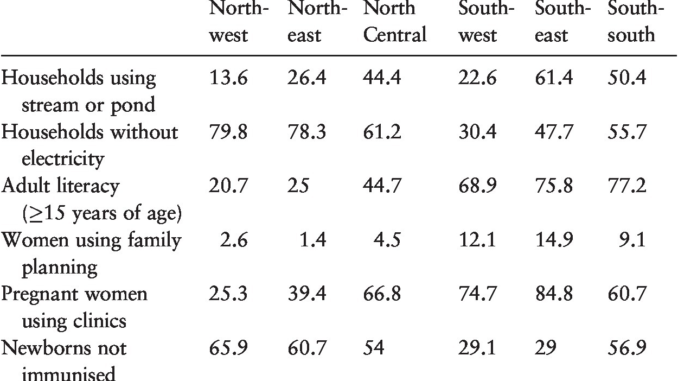
‘An African solution to African problems’ has been the slogan and way of expressing the truly pan-African spirit. It is always unlikely for one to comment about Africa’s lost glory without mentioning the word ‘colonialism.’ It is associated with a devil who took away with him what was African, including minerals, most strong and intelligent Africans, and African symbols of civilization as was civilization.
Africans had pride, endowments, peace with nature, peace with their God, employment for all, systematic transfer of knowledge or education for all, undisputed position of the elderly and adults in society, community duty to love and care for the young ones, peaceful families and clans, collective responsibility and democracy, happiness and contentment in their places of birth, strong-therapeutic unity and ready support for one another, greater sense of humanism and respect for one another, most beautiful and nurturing ecosystem, and far well-organized system to preserve those attributes. These assured them of holistic peace, moreover sustainable.
Before the penetration of influence from outside Africa in 1600, Africans lived complete life, true ‘Africanism’ existed. Africans were well-organized, with interesting governance, economic, social, cultural, and spiritual structures. These manifested in all aspects of their lives so much that distinction among them could hardly be found. The personality of the individual dissolved into society and society back into the individual. In every structure there were agreeable, well understood, expected behaviours to govern relationships among them.
God was understood to exist as one for all, not only for a few people; no one had jurisdiction over him (or her); he (or she) was independent from minds, individual powers, and none of the subjects considered taking custodianship of him (or her), and no one misused his (or her) name for selfish motives. The consequences of misbehaviour were well anticipated and self-justifying to culprits, witnesses, community.
An African’s relationship with God was personal, though, in many ways linked to social, political, economic, or cultural expectations of other people. The relationship added humanistic flavour to all other structures of human interactions a person found himself (or herself) in.
Consequently, individual Africans made expressions that were full of compassion, and accomplished tasks together without having to hurt each other, be it in leadership, business, and family affairs. Godly values got nurtured over time to form social, economic, and political systems. There was a tendency of Africans to import aspects of God during interactions with any of those systemic elements.
Africans had two basic political systems: segmentary and centralized systems of administration. Spiritual and religious influences did not spare the leaders of the day as perceived by the leaders and their people featured very prominently. Leaders took on positions of authority, not by their own making, but an effect of the will of the most superior-being (God).
The enthronement process of the community leaders involved acknowledgement of the greater powers, and they as much as the subjects pursued them to support the long life of the leader and prosperity of the kingdom.
Reciprocally, the kings saw themselves as most powerful people because of the godly recognition. It was a spiritual position, which prompted subjects not to object, but to obey any orders from them.
On their part, leaders ensured that spiritual values were nurtured and made to work in society. In return society took on those values as acceptable truth and feared to go against them as the consequences to doing so were severe.
Going against established ‘don’ts’ was fierce; it called for greatest courage of an individual to risk going against them. The obligation to follow established values became the future bases of behaviour, even for generations that came. They were shared values, which got strengthened over the years.
Social values and responsibilities were handed-on at family level, where children got instructed. Families were critical learning centres for children and adolescents (a kind of junior and high school) while the community was the university. A person was identified as belonging to a given family and clan. The high reputation of a given family was attractive: every one wanted to socialize, and pick a married partner from it.
From childhood, as early as baby years, families as much as community members knew their job descriptions, which were intuitively acquired and developed over time until they got manifested as skills known and recognizable by the family and community. It was on the bases of developing an orientation to a given but positive behaviour, powerful creativity, and exhibition of amazing works that practicing members got elevated to the fore.
A person’s fame for exhibiting highly desirably qualities and skills elevated him, his family and clan members to prestigious positions for many years while only tasked to preserve values of their ancestors, who began the walk to prosperity they now share as it might always be.
The opening up to new ideas from near and far areas of Africa influenced greatly indigenous beliefs, languages, foods, and practices held by the different tribal groups. It was ‘new’ knowledge the agents of change found justifiable to spread in order ‘civilize’ the new world.
The unfolding years came with new technologies of war and communication. Societies and nations with highest levels of technological advancement tended to influence more those that were technologically ‘dwarfs.’ ‘Dwarfism’ characterized ‘primitivism’ and preoccupation with war among African societies, tribes, and clans.
The population did not find time to question the challenges of the day in the area of administration, economic production, and communication among each other as with new immigrants they got in touch with.
Those made them vulnerability to any outside attacks and shocks, especially from nations or societies, which wanted to benefit from the economic and natural attributes of their communities for survival and prosperity.
As the invaders took positions in their newly found ‘homes’ and work-places in Uganda, like elsewhere in Africa, they practiced their beliefs and cultures, and shared them with the people they cared to interact with. But also part of their strength as new ‘owners’ of the land and all that took place on it made any other sort of influence from them equally stronger.
By the very nature of survival for the fittest slogan, Africans had already found themselves weaker under series of immigrants and invading tribal groups from within and outside Africa. Their old administrative arrangements were disrupted to give way to new structures, featuring intruders as new leaders of the indigenous societies. They went on to usurp ownership of the means of productions, dictated social expectations, and eroded cultural attributes of those societies.
Speaking, food choices, killing machines, and dressing were some of the easiest attributes to erode in favour of what the invaders carried along. Learning from the powerful groups was one way of creating a compromise, winning favour, and surviving alongside them.
Those who resisted new cultures easily got in trouble through execution, getting marginalized, and being forced to flee from their customary land, which was communally owned.
To further their influence the intruders went formal when they organized classes to swiftly transfer knowledge, cultures, and create new administrative hierarchies in new societies as old ones were perceived primitive and unacceptable. From here, Africans began to hate their own way of life, and looked forward to whatever was alien as best for them and their own as either satanic or ‘primitive.’
The reformist Africans faced-off with strong traditionalists, who retained their faith in what was African or indigenous. It is at this point that antagonisms and in-fighting started.
It was obvious that African groups, representing the powerful immigrant forces took their day, and were subsequently rewarded for all onslaughts successfully conducted against fellow Africans with land and prestigious social positions.
Today Africans measure themselves up to what they have achieved in terms of education and professional fields as indicators of success. There are tremendous investments in those areas. But the rising population makes it difficult for everyone to be weighed by the same scale.
Increasingly fewer people are able to get through the same sieve to attain success while, overtime, even those who get through it cannot easily obtain a share of the limited national resources and development opportunities, including land and jobs.
Looking forward to corporate jobs and good education is what society is up to. It is an attitude that most people have, without which life is ‘no more.’ But those who continue demanding to live it are forced choose unconventional ways, involving stealing, bribing, and killing while the shy ones go for destructive strategies to life, involving substance abuse, violence, and suicide.
For the modernists, there is no other way of living life to its fullest other than spending costly years of studying and finding excellent jobs. Contrary to that, they hold perceptions of failure, something again, is debilitating.
In Uganda, the population is doing less agricultural production than 20 years ago. There has been a steady decline in the sector performance, formally thought to employ 80% of its nationals. In his budget speech, the country’s president put the figures at 70%. The question is: if all Ugandans dream of heaven on earth, and are anxious to receive higher education and white-collar jobs, who will be entrusted with tilling the land for food?
Because less attention is put on agriculture, there is a lot of carelessness when relating with nature, including humans; modernist fail to link life or food production with it, and soon fall prey to their ‘stupid’ actions of degrading the environment, in the forms of mudslides, long drought seasons, famine, malnutrition, wars, and outbreak of fatal diseases.
The rising food insecurities and costs give no notice for the need to rethink the trend, which some elitists call positive development or prosperity and modernization, arguing that, so many people now sit in offices, never in gardens. Going in that direction only worsens the situation of food scarcity and food prices as much as insecurities and uncertainties about the future.
Conflicts today occur between people nursing religiously and ideologically extremist views they only inherited from determined immigrant forces. Each religion fights for superiority and honour by generating conflicting arguments and life-taking violent situations.
Modern terrorism has been attributed greatly to strong religious ideologies inherited from the immigrant forces. The social and political expectations introduced by those forces championed discriminative development enterprises.
Those who were inherently rich by the end of the colonial era are still so. They own large proportions of land more than for those whose ancestors were not rewarded, and are still many times wealthy.
Development strategies have since that time been leaned to ideals of the latest immigrant forces yet none of them have granted indigenous communities peace at any stage of national ‘advancement’ other than the causation of uncertainties, physical insecurities, and worries about new disasters that are artificial and natural in nature as survival strains linger.
The daily strives for survival gives families no time and space to visit one another and nurture love and care. This has accelerated stress-living, heightened vulnerabilities, and created grounds for children to grow without acceptable and life-building values. Victims to that often fall prey to world’s wrath when they are caught on wrong ‘footings.’
However, some voices today are championing entrepreneurship and talent development as not only a new way to cope with human-triggered challenges but a rediscovery of ‘Africanism’.
The African system made leadership and wealth available for whoever had the talent and natural strength to develop and exhibit them among fellow Africans were soon granted privileged positions in society.
While society in the African setting had its own challenges like being unable to protect themselves from foreign influences, and getting caught up into tribal wars most of the time, it had noble ways of managing society, predicting the future and dealing with uncertainties, so that at the end of the day, peace prevailed.
In their settings, everyone not only had rights, but were given and respected in the most practical sense of the word. For example, African education system was not discriminatory: everyone had a right to it and received it; everyone participated in production processes and development; exceptional talents were highly rewarded and became a source of political and social power, and without a fight, got respected by all; protected the environment through naming of natural species and linking them to their lineage not only as way of life, but a highly spiritual subject; respected differences and diversity, and used it to benefit from each other through what came to be known as barter trade; respected sex as a subject for only the married, and respected marriage itself, the only place for sex.
Even the war tools used were not as fatal as today’s. The injured had opportunities to live another life. Interestingly, though, the most thriving sector (tourism) now relies on interesting aspects of the ancient Africa.
Africans failed to stand up for their political, cultural, economic, and spiritual rights when they were invaded by new tribes and forceful immigrants from outside the continent. They fell prey to the invading parties by adopting new cultures and other aspects of life, and got mixed-up or confused.
The new structures accelerated internal conflict, have until now persisted, worsened by globalization effects. Any problems in Africa traceable before internal and external invasions were tribal wars, aimed at shaping the power of individuals and societies, and establishment of individual or social identities from the rest of the communities.
Aggression was employed and exercised to create a measurable impact, mindful of the need to prevent unnecessary damage or destruction to themselves. When their intentions got visible enough to give society and individuals’ new social, economic and political outlook or structures, very quickly agreements were reached. In other words, war could not be endless.
The situation was only worsened by elitism created by the powerful invaders, when they labelled their ideals as ‘better,’ and demonized what they found (indigenous). The demonized and ridiculed parties continued to fight for their rights to exist as historically and naturally predisposed.
The elite class soon got themselves in a single position to call their great-grand father’s customs satanic. It is true that satanic people exist everywhere, especially where the social and cultural fabric no longer exist, from which to nurture new generations. It can be noted however that, in any practice, whichever area on the planet it started, practitioners do error or misuse it for other motives, which turn out to be really devilish.
While in the traditional structure had ways through which to reconcile wrongful people and be reintegrated back into society for sustainable peace, today, there is no formula for abusers of African knowledge and practices as for modern day ethics and moral expectations. They are often arrested and tried in courts of laws, which maintain the crime within the minds of individuals (criminals) as society waits to continue to ostracize them.
Today’s challenges are victimizing to the new generation. It lives without leadership from childhood. If there is any such leadership, it is irresponsible and neglectful.
As such, society is met by sections of unruly, destabilizing, and life-threatening section of its own members, so hard to deal with; in the category of robbers, corrupt leaders, greedy individuals, prostitutes, street-beggars, lazy people, poor people, unmarried people, unemployed youths, rapists, diseased, and agitated and violent people.
The present troubles like food insecurity, unemployment, lack of medicine, crime, unmarried living, risky sexual behaviours, and problem-children and youth were well addressed in the African setting. Therefore, as we look for solutions to Ugandan (or African) problems, even for the search of national cohesion, we should not look any further than Uganda (or Africa).
Unless otherwise stated, PONIREVO and/or its licensors DO NOT own any intellectual property rights in the website and material on the website. Majority of the site’s content has been scraped and auto posted by a third party artificial intelligence program —– PONIREVO Creation Team.
Proudly WWW.PONIREVO.COM



